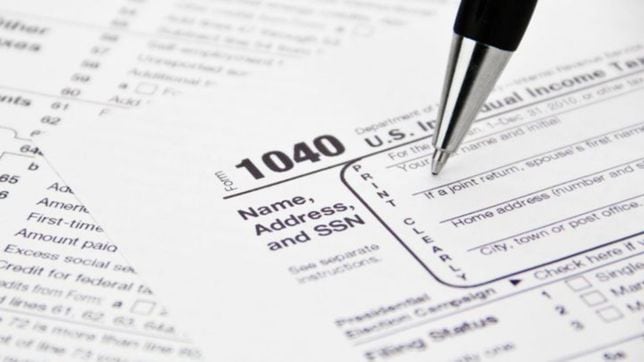US tax season begins, live updates: dates, requirements, refunds, payments...
The filing season for the 2023 tax year is underway, giving millions of Americans the chance to claim money back as part of a tax refund.


Show key events only
US Tax Season: Live Updates
Headlines: 29 January 2024
- The IRS will begin processing returns today, submit your return ASAP to receive your refund quickly.
- Filers have until 15 April to submit their return. Looking for an extension?
- Good news! Bigger returns are likely to be delivered this year compared to last.
- The states where retirement is not taxed
- A look athow tax season typically affects the stock market
The IRS has started receiving and processing tax returns, and the government agency is reminding everyone to file before the April 15 deadline.
For those who submit their paperwork early, your diligence will pay off as you will get any refund owed you earlier as well. Depending on whether you filed online or on paper, and whether you chose to receive your money through direct deposit or a paper check, it could take as little as two to three weeks for you to receive your federal income tax refund.
IRS foresees receiving 146 million individual returns
The Internal Revenue Service opened the 2024 tax season by accepting and processing federal individual tax returns as the agency continues focusing on expanding options to help taxpayers.
The IRS expects more than 146 million individual tax returns for 2023 to be filed this tax season, which has a deadline of April 15, 2024.
Refunds Additional Child Tax Credit to arrive in February
Taxpayers with eligible children in 2023 can claim the Child Tax Credit worth up to $2,000 per child.
This year the credit is partially refundable, and there is an earnings threshold to start claiming the up to $1,600 portion known as the “Additional Child Tax Credit.”
If you use direct deposit, you could see the ACTC refund in your account as early as February 27.
The 2024 tax season has already begun. The standard deduction is a predetermined amount of income that you are allowed to deduct from your taxable income without having to answer any questions about the deduction.
Claiming the standard deduction instead of your actual deductions is much easier, but it might cost you more.
Tax season has officially begun in the United States, with filers having until Monday, 15 April, to submit their return.
However, there are a few cases where waiting to submit your tax return could have positive effects.
Tax season is underway!
Tax season has arrived, and the IRS will begin processing returns and distributing refunds. Filers have until Monday, 15 April to submit their returns, but extensions are available at no cost to those who need them.
Tax season has officially begun, with the IRS beginning to process tax returns and distribute refunds. How large will the average refund be this year? Let’s take a look.
With no changes to the tax code compared to last year, the size of the refund is likely to be similar. These refunds are smaller than those distributed during the pandemic when additional tax credits and benefits were enhanced to boost the income of households, particularly those who had lost their jobs or had children.
Tax refunds for last year’s filing season was markedly smaller than previous years. This was not surprising considering the array of tax breaks instituted during the covid-19 pandemic expired, bringing refunds down to more expected levels.
Indeed, the average tax refund for the 2022 filing season was $2,827, down from $3,099 the year prior; a near 9% drop. A major factor in this was the ending of the enhanced Child Tax credit, which offered nearly twice as much money as it does today.
The IRS advises all filers to get their returns in as early as possible to avoid delays in the processing and distribution of tax refunds. A majority of filers are expected to receive a tax refund this year, and submitting your taxes early means you stand to receive your payment more quickly.
It also ensure that you have plenty of time before the 15 April deadline, just in case you find any issues when you come to submit your return.
Taxpayers can claim various tax benefits and credits, including the Earned Income Tax Credit (EITC) of up to $7,430. This benefit aims to help low-to-moderate-income workers. If a taxpayer qualifies, they can use the credit to reduce the taxes they owe or increase their refund.
To claim the EITC, you must have what qualifies as earned income and meet certain adjusted gross income limits as well as limits on the credit for the year
The new rules for the $7,500 IRS credit only apply to new vehicles purchased after 1 January 2023 but if you bought a car the year before, your EV may qualify for the prior rules. One major change to the Internal Revenue Code Section 30D, which the credit falls under, is that the electric vehicle must have its final assembly be in North America, this also applies to vehicles bought last year after 16 August.
You can apply for an extension to the Internal Revenue Service (IRS). However, those making this type of request should be aware that the extension applies to submitting the return, not to any taxes owed to the agency.
The extension will push back the filing deadline to Monday, 15 October. To obtain one, you can use the IRS Free File software to make the request. The request needs to be made by 15 April, 2024.
To make sure that you get all the tax credits and deductions that you have coming your way to potentially increase your refund, or barring that, paying less taxes, there are a number of tax software programs.
The top providers have both free and paid versions of their services that can make the process of submitting your 2023 tax return easier. Additionally many have apps that allow you to use the software on your smartphone or even a tablet.
Here’s a look at those that are considered the best in 2024.
In 2024, the official kickoff for tax filing is set for 29 January, also known as today!
Filing taxes promptly not only ensures compliance with tax laws but also helps taxpayers receive any eligible refunds quickly. The IRS encourages electronic filing and direct deposit for faster and more efficient processing.
We'll start with some pointers for the help you can receive in the coming months...
Welcome!
Welcome to our live feed for the 2023 tax filing season! Millions of individuals and businesses across the nation are gearing up to navigate the complexities of tax regulations, deductions, and changes in the tax code. Whether you're a seasoned taxpayer or a first-timer, join us for real-time updates, expert insights, and valuable tips to make this tax season a seamless and informed experience.

/cloudfront-eu-central-1.images.arcpublishing.com/diarioas/UAN5RE5OPBFCXDKCJIUHQQMJWI.jpg)




/cloudfront-eu-central-1.images.arcpublishing.com/diarioas/GEN57DCOUVKQXO7SJZIKVHULNU.jpg)



/cloudfront-eu-central-1.images.arcpublishing.com/diarioas/AJOLUQAAFZNSDD67TYZOXNU3GM.jpg)
/cloudfront-eu-central-1.images.arcpublishing.com/diarioas/ZW4IMKR2CNOWLCYTLHE3CZOJXY.jpg)




